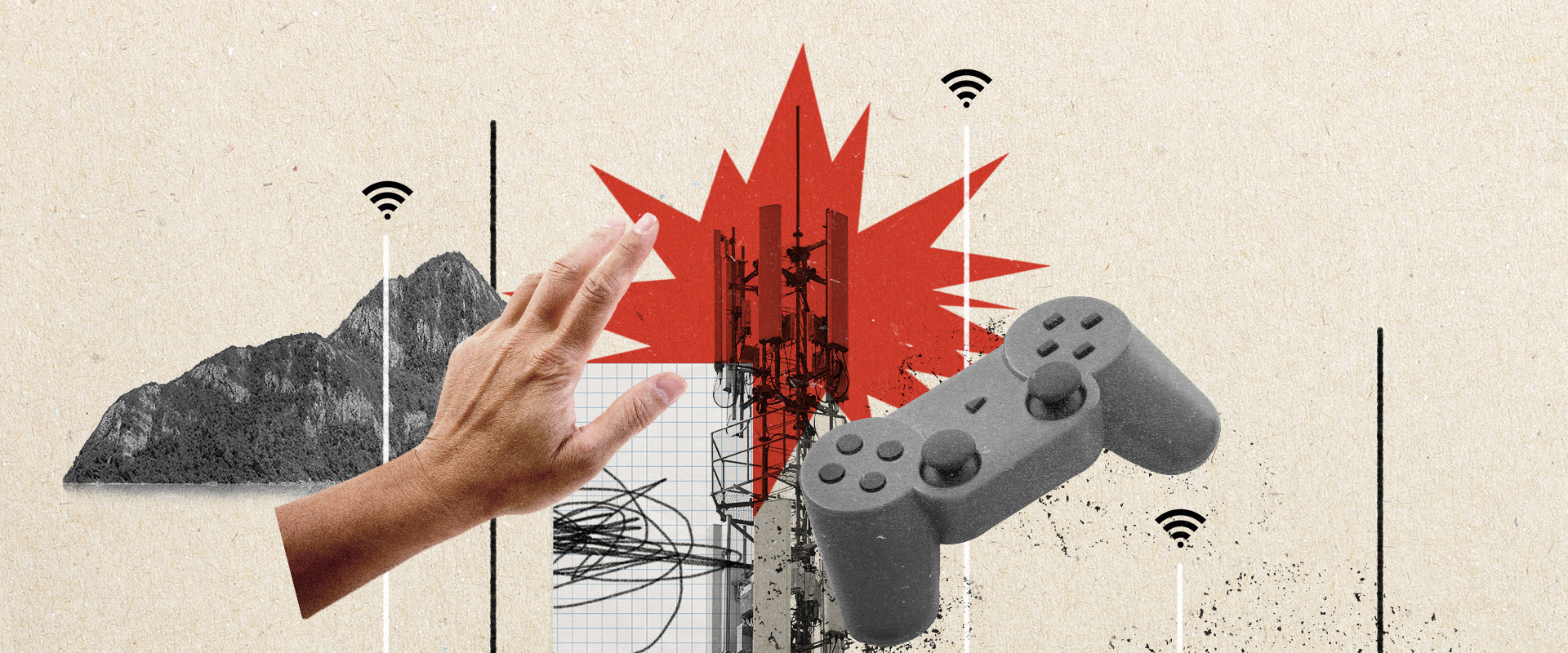EXPERT TAKE
Stephanie Marchand on 5G and Gaming
The promise of widespread 5G wireless technology is expected to revolutionize gaming as we know it and Behaviour’s VP Production, Studios, Stephanie Marchand, is dedicating long hours to imagining what that future may look like.
5G is the fifth-generation mobile network and replaces 4G as the latest standard for wireless technology. Among its many advantages, 5G will deliver more data at previously unheard-of speeds, thereby reducing latency, improving reliability and providing an all-around richer, more stable user experience from almost anywhere.
Though still limited, 5G penetration is expanding internationally and is expected to include regions where access to high-speed wireless is currently minimal, if it exists at all.
Stephanie believes all this will translate into a vast number of exciting opportunities for the gaming world. Among them, the new technology will allow developers to re-imagine what games can do and introduce state-of-the-art gaming to parts of Africa and Asia where sufficient network capacity has been lacking.
New realms of possibility
The arrival of 5G alongside the rise of cloud computing and subscription-based games services is “absolutely amazing,” Stephanie says.
“Suddenly, even if you have a low-end device, if it supports 5G you’ll be able to have a super hi-res game on your phone even if it doesn’t have the processing power to do it.”
In terms of the gaming experience, Stephanie says the combination of 5G and cloud computing could see more widespread use of geolocation and its pairing with other technologies that require more bandwidth, such as augmented reality (AR).
“What would happen if you take a game like Pokémon GO and combine with these other technologies,” she says. “It just opens a whole new realm of possibilities. Pokémon GO barely scratched the surface.”
5G’s improved speed and data capacity could also allow for the addition of gamification layers into certain platforms, and what Stephanie refers to as “the mixing of genres.”
“I think this is extremely interesting and you can start to see some blurring of lines,” she says. “We’ve started to see this already with games inside Snapchat. They were tiny and not super ambitious because the platform takes so much power, but now with cloud gaming and 5G you will suddenly have a lot more possibilities to create a new genre of game.”
As to what this new genre could look like, she points to interactive Netflix titles such as Black Mirror: Bandersnatch that bring traditional adventure game concepts to streaming video. 5G could help this evolve further, into an altogether different experience that blends streaming video, cloud computing and gameplay.
5G could also broaden access to virtual reality (VR) technology. Stephanie points to a new chipset being developed by Qualcomm that would give VR headsets wireless 5G capabilities, removing the need for costly home-based systems and allowing VR users to roam.
“You’ll have a helmet that you’ll be able to use everywhere, that’s a lot lighter because it’s cloud gaming and 100% autonomous – no cables and no need for this expensive home computer,” she says.
VR content will also benefit as 5G explodes notions of what’s possible. VR games are already exploring new horizons, such as Valve’s VR edition of Half-Life, which Stephanie says is “absolutely creating a new standard in terms of quality.”
5G’s impact on subscription-based mobile gaming platforms also cannot be underestimated. 5G’s enhanced capacity and speed as well as its impact on latency means these services will be able to include premium games with heavier data requirements that you could previously only play on a home system.
“With a subscription model and cloud computing, you can go to work and keep playing the game you were playing at home on your TV on your mobile device. With 5G, there’s a chance that those games that are a lot more narrative-driven, that are adventure-driven, games with real-time social features are going to have a place on mobile and that has not really been the case so far.”
Geographic expansion
5G will also open new regions of the world to gaming, creating new markets in Africa and parts of Asia for eSports and new high-quality gaming experiences tailored to those cultures.
“There are parts of the world that are going to completely skip home internet,” Stephanie observes. “People in parts of Africa and Asia will never know the RG-45 cable at home and the modem and wifi. They’re going to go directly from whatever connection they have right now to 5G. They might go from 3G to 5G and completely skip 4G.”
This will translate into new opportunities to create culturally relevant games for markets in Asia and Africa. And with Africa’s under-24 population on the rise, the potential is huge.
“These markets will also want different games that reflect their cultures and backgrounds,” Stephanie notes.
“Right now, there are few games that are made for African culture.”










